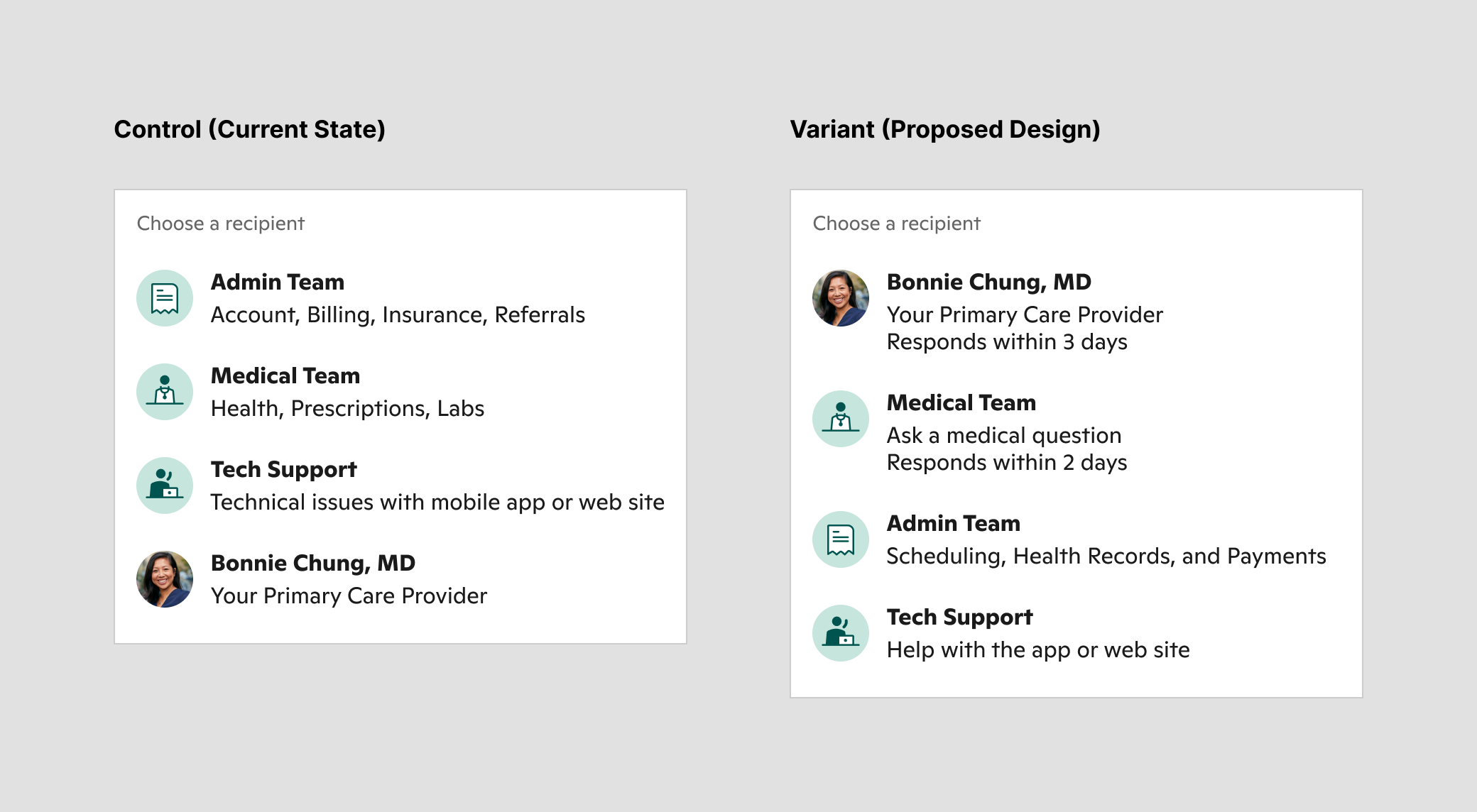Reducing Provider Burnout Through Optimized Message Routing
My Role: Lead Designer in partnership with User Research and UX Writer
Highlights
💬 Optimizing Message Distribution
Usability test showed reordering recipients and improving descriptions would reduce provider workload significantly
Variant design led to a notable shift in message distribution:
↓38% drop in messages to care provider
↓42% drop in messages to Med Team
↑14% increase in messages to Admin Team
Research indicated members would select Admin Team more often for non-clinical messages compared to current state
📊 Post-launch Impact
↓12% decrease in misdirected messages (from care providers to admin team), statistically significant.
Top improvements:
Pharmacy questions: ↓35% reduction
Health Record help: ↓32% reduction
Prior authorizations: ↓22% reduction
Overview
I led a project to improve message recipient routing, aiming to increase member satisfaction and reduce Care Team message volumes. The current guidance for choosing recipients didn't effectively direct members to the appropriate team, causing delays when messages needed to be reassigned.
Hypothesis: Clearer recipient subtitle copy and adjusting sort order will improve member satisfaction and business results.
Success Metrics: Route admin-related questions away from the medical team.
Approach: We conducted an unmoderated usertesting.com study with 12 participants, comparing the control and variant designs. The study assessed the ease of choosing the correct recipient in 7 common scenarios co-created with clinicians.
Research Findings Showed Significant Improvements with the Variant
Variant Successes:
Schedule Visits: ↑58% lift
Delayed Test Results: ↑59% lift
Variant Shortcomings:
Billing Question: ↓8% decrease
Vaccine Availability: ↓34% decrease
Results also revealed a notable shift in message distribution between Variant and Control:
Primary Care Provider: ↓38% relative decrease in messages
Med Team: ↓42% relative decrease in messages
Admin: ↑14% relative increase in messages
Key Research Takeaways:
Update admin description: Replace "Payments" with "Billing."
Assess the inclusion of "Vaccine availability" in the admin description, considering seasonality and space limitations.
Put Admin first, since most topics would be solved with this team.
Future Considerations:
Explore differentiating between Primary Care Provider and the Medical Team.
Consider a topic-based approach instead of having members choose recipients to alleviate the burden on members and prioritize faster triaging based on articulated concerns.
Add more education on using On-Demand services for the fastest response time (outside of picking a recipient view).
Real-World Results: Significant Reductions in Misdirected Messages
After implementing the description change and reordering the recipient list based on successful research findings, we observed a statistically significant 12% reduction (8.92% vs 10.13%) in misdirected messages. The most notable improvements were seen in:
Pharmacy questions: 35% reduction
Health Record help: 32% reduction
Prior authorizations: 22% reduction

